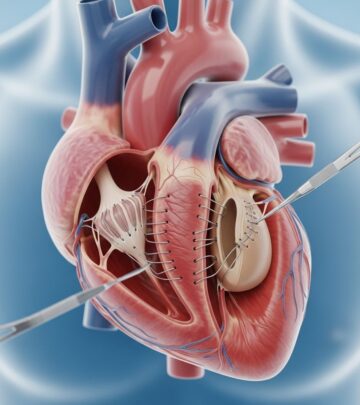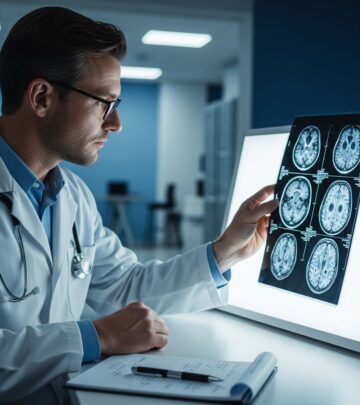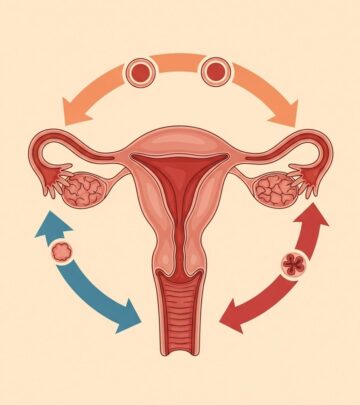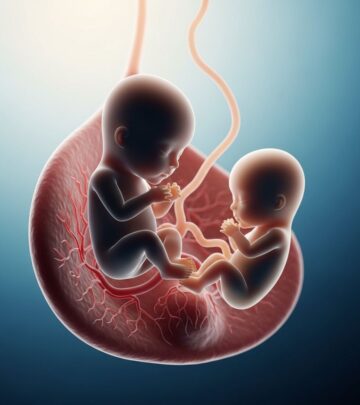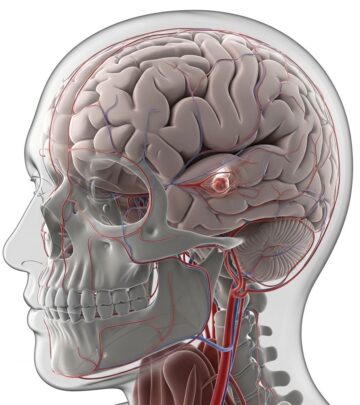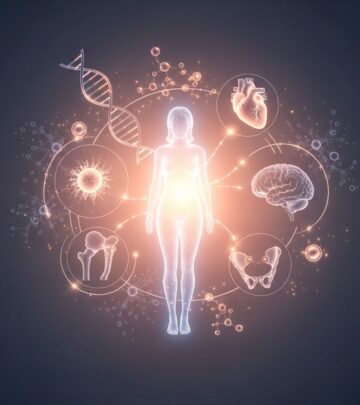Appetite and Weight Loss in Lung Cancer: Causes, Impact, and Management
Understand why loss of appetite and weight loss occur in lung cancer, the risks they pose, and expert strategies for managing these challenges.
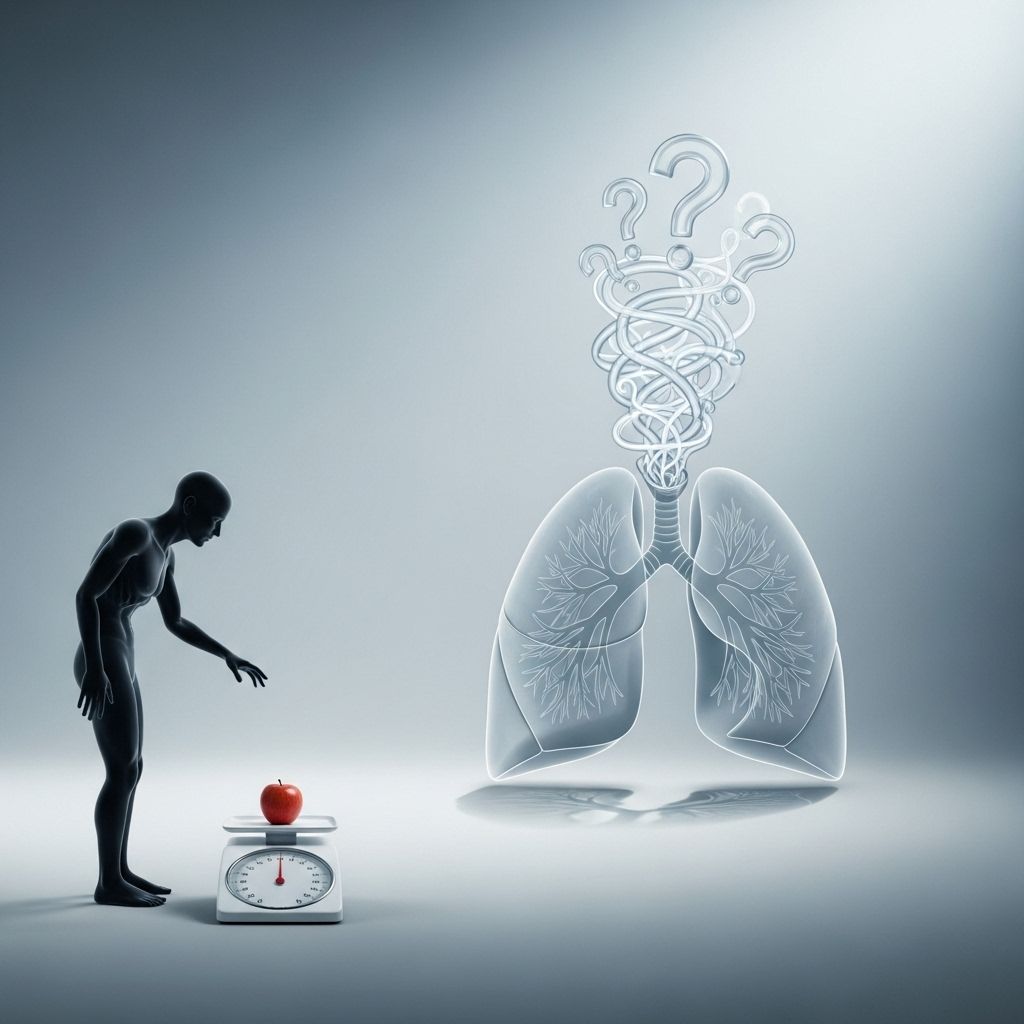
Appetite and Weight Loss in Lung Cancer
Unintentional loss of appetite and weight loss are among the most common symptoms experienced by people diagnosed with lung cancer. These symptoms can occur due to several intertwined factors, ranging from the effects of the cancer itself to the impact of treatments and emotional wellbeing. Proactively managing nutritional health is crucial, as poor nutrition can worsen treatment outcomes and quality of life.
Why Do Appetite and Weight Loss Occur in Lung Cancer?
Loss of appetite (anorexia) and weight loss are key symptoms in many lung cancer patients. These problems often precede diagnosis, sometimes signaling the disease itself. Weight loss can be rapid and involuntary, especially in advanced stages of cancer.
- Lung cancer can produce substances that suppress hunger, leading to reduced food intake and poor nutrient absorption.
- Systemic inflammation caused by tumors can alter metabolism and impact the hormones that regulate hunger.
- Cancer cell activity causes the body to burn more calories and nutrients than usual, resulting in energy deficits.
- Other symptoms, such as pain, fatigue, nausea, difficulty swallowing, and breathlessness can make eating difficult.
Emotional factors such as anxiety, depression, and the psychological impact of diagnosis further contribute to appetite loss and changes in dietary habits.
Main Causes at a Glance
| Physical Causes | Treatment-Related Causes | Emotional & Social Causes |
|---|---|---|
| Tumor-related inflammation | Chemotherapy/radiation side effects | Depression, anxiety |
| Pain and swallowing difficulties | Medications affecting taste or digestion | Loneliness, lack of support at meals |
| Breadthlessness, fatigue | Mouth sores, nausea, vomiting | Apprehension about eating after diagnosis |
Cachexia and Its Role in Lung Cancer
Cancer cachexia is a medical syndrome characterized by severe weight loss, muscle wasting, and loss of appetite that cannot be fully reversed by normal nutritional support. It is particularly common in advanced lung cancer patients and is distinct from general malnutrition because it involves metabolic changes driven by the cancer itself.
- Cachexia is observed in up to 80% of people with late-stage cancers.
- Symptoms include rapid loss of muscle and fat, overwhelming fatigue, weakness, and anemia.
- Tumor cells release substances that decrease appetite and alter metabolism, making it difficult to maintain weight even with adequate food intake.
Unlike weight loss from diet or lifestyle, cachexia is largely involuntary and resistant to conventional nutritional interventions. It is associated with shorter survival and contributes significantly to reduced treatment tolerance.
How Appetite and Weight Loss Affect Health and Treatment
- Weight loss and poor appetite can affect how well the body handles cancer treatment (such as chemotherapy, radiation, or targeted therapy).
- They increase the risk of infection and delay healing.
- People with significant weight loss may feel more fatigued and physically weak.
- Muscle loss can reduce functional ability and independence.
- The likelihood of experiencing severe side effects from treatment is increased.
- Overall quality of life and psychological wellbeing may suffer.
Key Points About Prevalence and Prognosis
- Studies show that anorexia affects 30-40% of patients with advanced lung cancer.
- Up to 70% of patients with stage IV disease experience unintentional weight loss before starting treatment.
- The combination of appetite loss and weight loss is strongly associated with shorter survival and lower treatment effectiveness.
Signs and Symptoms to Watch For
Changes in appetite and weight may be subtle at first. It is important for people with lung cancer, and their caregivers, to monitor:
- Unintentional weight loss (losing >5% of body weight over 6-12 months without trying)
- Reduced interest in eating or persistent fullness
- Trouble chewing, swallowing, or keeping food down
- Changes in ability to taste or enjoy food
- Feeling nauseous or sick after small meals
- Fatigue related to malnutrition
Practical Strategies for Managing Appetite and Weight Loss
While weight and appetite changes can be challenging, there are several approaches to help maintain nutritional status and support overall health during lung cancer treatment.
Expert Tips for Managing Poor Appetite
- Eat small, frequent meals: Aim for 5–6 smaller meals each day instead of three large ones.
- Choose high-calorie, high-protein foods: Add cheese, eggs, beans, nut butters, and full-fat dairy products to meals.
- Include liquid nutrition: Smoothies, shakes, and soups can be easier to consume than solid foods.
- Limit fluids during meals: Drink fluids after eating to avoid feeling full too quickly.
- Try easy-to-eat snacks: Crackers with cheese, yogurts, trail mix, and protein bars can boost calorie intake.
- Enhance flavor and aroma: Use herbs, spices, and seasonings to make food more appealing.
- Stay as active as possible: Gentle activity before meals may stimulate hunger; walking or stretching can help.
- Maintain food variety: Rotate foods to avoid taste fatigue, especially if chemotherapy affects taste.
Dealing with Other Eating Challenges
- If you have mouth sores or pain swallowing, try soft, bland foods like puddings, mashed potatoes, or scrambled eggs.
- If nausea is an issue, eat dry foods (pretzels, toast) and avoid strong-smelling dishes.
- For breathlessness, eat slowly and choose foods that don’t require much chewing.
If Weight and Appetite Don’t Improve
It is critical to notify your cancer care team if appetite or weight issues persist. Medical professionals can:
- Monitor nutrition and recommend dietary changes
- Prescribe appetite stimulants or medications to help with nausea or pain
- Refer to a registered dietitian or nutritionist experienced in cancer care
- Discuss options like nutritional supplements or tube feeding if necessary
Proactive medical support can help prevent or address malnutrition before it leads to more severe health issues.
Frequently Asked Questions (FAQs)
Q: Can lung cancer itself cause weight loss, even before treatment?
A: Yes. Lung cancer can create substances that suppress hunger and speed up metabolism, leading to unintentional weight loss even before diagnosis or treatment begins.
Q: What is cancer cachexia, and how is it different from regular weight loss?
A: Cachexia is a metabolic syndrome found in advanced cancer patients. Unlike ordinary weight loss, cachexia involves involuntary, significant muscle and fat loss, and does not resolve with standard dietary measures. It is often accompanied by deep fatigue and weakness.
Q: Why do treatments for lung cancer sometimes worsen appetite and weight loss?
A: Treatment side effects like nausea, taste changes, mouth sores, and overall fatigue can further reduce the desire to eat and the ability to absorb nutrients.
Q: What are the warning signs that nutritional problems are becoming severe?
A: Signs to watch include ongoing weight loss, eating less than half your normal diet for more than a week, new or worsening weakness, and mouth or throat pain interfering with eating.
Q: Are there specific foods that help prevent weight loss in lung cancer?
A: High-calorie and protein-rich foods are best—think full-fat dairy, eggs, nut butters, meats, beans, and high-calorie shakes—combined with small, frequent meals. Working with a dietitian can tailor an eating plan to individual needs.
Key Takeaways
- Appetite loss and weight loss are very common in people with lung cancer, and can significantly impact treatment and survival.
- Cancer cachexia is a complex syndrome that is different from regular, voluntary weight loss. Weight loss from cachexia is involuntary and difficult to reverse.
- There are many practical steps patients, families, and care teams can take to support nutrition, even if appetite is low.
- Early intervention with nutritional support improves outcomes and quality of life.
- Always communicate appetite and weight changes with your medical team for best results.
References
- https://www.mylungcancerteam.com/resources/lung-cancer-and-weight-loss
- https://www.lungcancercenter.com/lung-cancer/symptoms/weight-loss-appetite/
- https://pmc.ncbi.nlm.nih.gov/articles/PMC7567625/
- https://www.cancercouncil.com.au/lung-cancer/managing-symptoms/poor-appetite-and-weight-loss/
- https://www.healthline.com/health/unexplained-weight-loss-cancer
- https://www.medicalnewstoday.com/articles/323701
- https://pmc.ncbi.nlm.nih.gov/articles/PMC10053575/
- https://www.asbestos.com/treatment/nutrition/lung-healthy-foods/
Read full bio of medha deb

